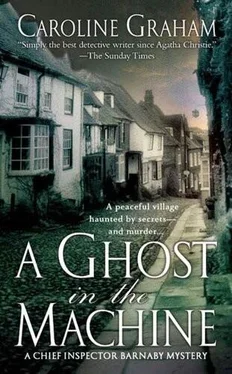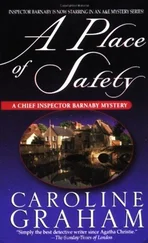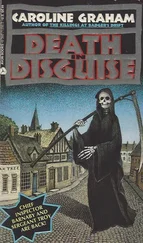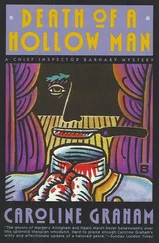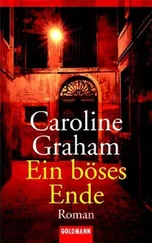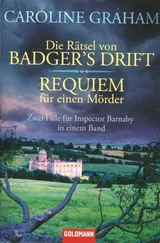He wondered more than once during this waiting period what, if anything, Gilda might be bringing to the marriage in her own right. Savings, jewellery, a share portfolio. Did the BMW actually belong to her? Far too canny to ask even the most oblique questions in this regard, Andrew kept his fingers crossed as more days ticked by.
Then, a few hours before the wedding eve, there was a message that Charlie Berryman wanted to see him. This time the meeting was at a solicitor’s office in Uxbridge. Andrew presented himself – not too apprehensive. He was marrying money in two days’ time and believed no one could stop him.
It was Berryman himself who sat behind the desk; the solicitor leaned up against the water cooler. Andrew was not asked to sit down. It was explained to him that he had been investigated and found wanting on the matter of property ownership in foreign parts – or anywhere else come to that. As regarded financial or any other sort of integrity his reputation stank.
“You’re a gold-digging tosser,” concluded Berryman. “But my daughter loves you. And, unlike the others, you seem prepared to see this farce through to the bitter end to get your snout in the trough.”
“That’s not fair!” cried Andrew. “I shall marry her even if—”
“Spare me the bullshit. We both know what you are.” Charlie beckoned the solicitor, who came forward and handed a paper to Andrew. “Sign that.”
“What is it?” He made no attempt to read the document.
“A pre-nuptial agreement,” explained the solicitor. “In the event of irrevocable marital breakdown or divorce you are entitled to nothing.”
“Not a bleeding penny,” said Berryman.
“Well,” Andrew, his heartbeat quickening, threw the paper on the desk, “as you’ve cast her off without ‘a bleeding penny,’ this is hardly relevant.”
“Gilda won’t want for anything, I’ll make sure of that. Sign it.”
Andrew shrugged, the epitome of cool. But his fingers, hardly able to hold the pen for excitement and relief, gave him away. He signed.
Berryman took back the contract. “You’re a heap of shit, Latham. And I hope before I snuff it I see you back in the gutter where you belong.”
Alas for Charlie’s hopes, he died of a stroke followed by a brain haemorrhage just three years later. But he lived long enough to be reconciled to his daughter, who eventually had to agree that he had had her best interests at heart.
It was unfortunate for Andrew that the old man lived so long. Coming across the pre-nuptial amongst Berryman’s papers Gilda returned it to the family solicitor with the instruction that it should still stand. Up to a year after the wedding or perhaps even a little longer, she might have torn it up, but by this time, in spite of Andrew’s untiring, exhaustive efforts to act the part of devoted husband and lover, even she was beginning to see cracks in the façade, and sense behind them fear, greed and, worse of all, a massive indifference as to her welfare and happiness.
They lived comfortably, at least in material terms, in a handsome ranch-style bungalow with green shutters and a wide veranda. Ten rooms surrounded by an acre of attractive gardens and an open-air pool. The house, which Gilda had christened Bellissima, was in her name. She also had a decent allowance – enough, anyway, to buy Andrew a car on his forty-second birthday – a yellow Punto, R reg., but in pretty fair condition. The cream coupé, which she still drove, turned out to belong to Berryman and he refused to reinsure it to include another driver.
Andrew was expected to earn his living. At his age and with his work record there seemed – and here Berryman jabbed a calloused finger hard into his son-in-law’s solar plexus – little point in writing letters and seeking interviews.
George Fallon of Fallon and Brinkley, who had handled Berryman’s affairs since he was heaving scrap iron about in the early seventies, was on the point of retiring. Charlie got his account safely transferred to Dennis Brinkley, then made an offer for Fallon’s half of the business. As a fellow Lion and member of the Rotary Club he knew his approach would be favoured over several others.
There were two reasons for this purchase, neither even faintly altruistic. First, the company had grown to about ten strong and was doing extremely well, making the acquisition a good investment. And second, Gilda was becoming extremely uncomfortable at having a husband who either sat about the house all day or insisted on accompanying her wherever she went, even if it was just to see a girl friend. “Also,” she further explained to her father, “people are talking. I overheard this attendant at the pool – she was calling Andy a sycophantic leech.” Berryman did not know sycophantic but he knew leech all right and thought the smart little tottie had got it in one.
It took a long time for Gilda’s disillusionment to become complete. Finally having found someone who loved her for herself alone, even when she started to suspect this was not true she could not bear to let the illusion go. She hung on through the discovery of her husband’s lies about the past, his secret gambling and mounting debts. And through her never proven suspicions of other women. But each revelation gnawed and nibbled away at the heart of her earlier bewitchment until she awoke one morning and found that the illusion was no more and love had gone. And the dieback had been so gradual that this final discovery didn’t even hurt.
Freedom felt strange at first, clean and empty like a cavity when a rotten tooth has been drawn. But, the human mind being what it is, the cavity did not remain empty for long. And in Gilda’s case it was filled, degree by slow pleasurable degree, with the understanding that she now had another human being completely in her power. Without her, Andrew, by now in his late forties, had nothing. No home, no food, no money. And no prospects of getting any of these either. His weakness, his inability ever to get his act together, had left him stranded. All washed up like the soft-shelled creatures left helpless on their backs when the tide goes out. Very occasionally he would murmur a request – perhaps for a new jacket, or some books. Or, even more occasionally, he might make a mild complaint when it would be briskly pointed out that if he didn’t like the way things were round here he could always go. Except that he couldn’t because he had nowhere to go.
Not a happy state of affairs. Gilda sometimes thought she might never experience happiness again – had indeed almost forgotten what it felt like. But one thing she did know: if you couldn’t have happiness, power was definitely the next best thing.
The Lawsons’ appointment, already referred to by Dennis Brinkley, was for 10:30. At 10 a.m. Polly was still not up. She had been called twice and replied twice that she was getting dressed. Finally, instead of calling, Kate went into her room to find Polly still in bed. She wasn’t even pretending to be asleep; just lying on her back and gazing at the ceiling.
“You know we’re due in Causton at half-past ten.”
“No, I didn’t.”
“I told you when I brought your tea.”
“So?” Polly sat up, shaking her dark curly hair. Scratching her scalp. Sighing. “Why do I have to come anyway?”
“Because you have a bequest in her will.”
“Bequest.” The word was a scornful snort. “Bet it’s that rubbish cameo—”
“Listen!” Kate seized her daughter by the arm and half dragged her off the mattress. “Don’t you ever talk about Carey or her things like that. Especially in front of your father.”
“OK…OK…”
“You know how much he loved her.” Kate, exhausted by the previous day’s activity and comforting her husband through a sleepless night, struggled to banish tears of weakness. “I want you downstairs and ready to leave in ten minutes.”
Читать дальше
